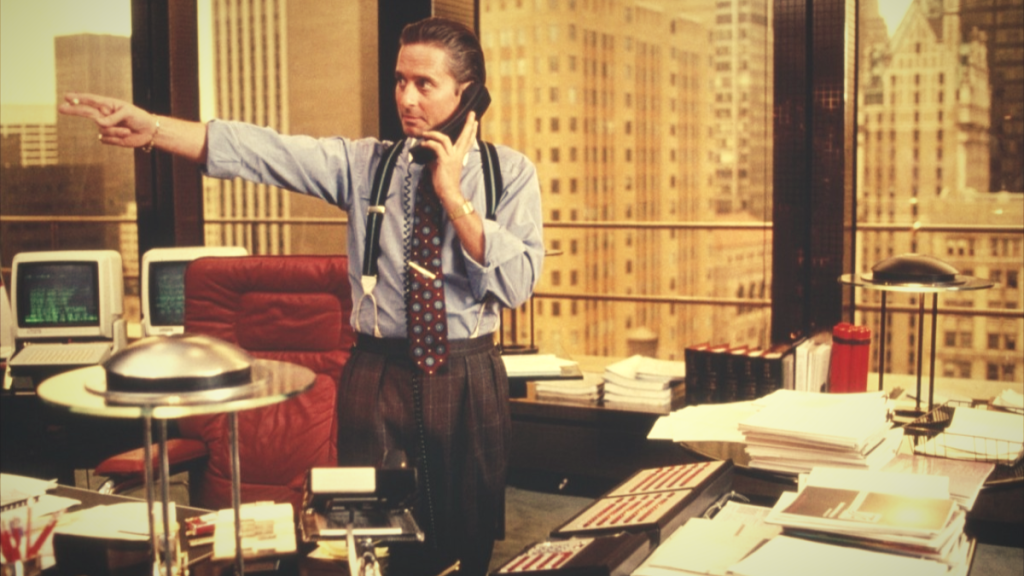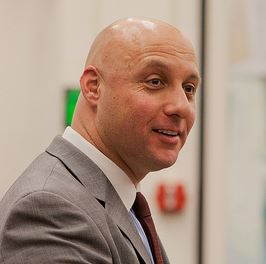During a recent discussion, a good friend of mine said that he wished businesses were more altruistic instead of profit-oriented. I told him that if all businesses depended on human love and kindness, we’d be in trouble. As much as he loves doing what he does for a career (he is a teacher), if he did not get a paycheck, I am positive he would find a different job. In fact, teachers unions usually protest that teachers are underpaid! His response to me was that there is a difference between management (especially CEOs) and labor wanting to make more for themselves. When CEOs want more for themselves or their company, it’s nefarious. When employees want more for themselves, it’s a matter of justice.
I don’t buy it.
Businesses do not provide us with goods and services because they care about us.
When I go to Starbucks and order my latte, I don’t care if the coffee was made with love or hate, as long as it’s made with good coffee and fresh milk. Although it seems Starbucks loves me when they provide their services, it’s the profit motive that drives them to do what they do. The only way a business can make money (excluding government subsidies) is by giving consumers what they will willingly pay for.
Voluntary trade is a positive sum game – a win-win situation – providing that there is no fraud or misrepresentation involved. Yes, as a buyer, I would love to pay zero dollars to get goods and services, and I’m sure the seller would love to charge me billions of dollars! But then nothing would happen. The fact that I am willing to spend $X on something and the seller is willing to accept $X proves that both of us are benefiting. Otherwise, the trade would not take place. Yes, Starbucks wins by receiving my money. But I also win because I wanted the coffee more than the money in my wallet or any other good or service I could have purchased with that same money.
The equivalency between CEOs, employees, and customers comes down to rights.
The prevailing view among many anti-business people and social justice champions is that big businesses exploit their workers and customers. Walmart is criticized for not paying its employees enough or for “forcing” its workers to work long hours. However, nobody ever criticizes employees who want to get paid more. Moreover, nobody ever criticizes consumers who want to pay less.
When businesses are criticized for “charging too much” or “ripping off their customers,” the underlying assumption is that people have a right to receive a good or service or have a right to get paid a certain wage. Conversely, those businesses owe customers a good or service or owe employees a higher wage. The only thing a customer or employee is owed is the product he or she paid for or the wage he or she was offered when hired. In other words, if I pay for something and it’s not what the business promised, then that is a true “rip off.” If my employer promises to pay me $X per hour or per year but then they do not, that would be exploitation. Otherwise, it is nothing more than a mutually agreed upon, voluntary transaction.
There is a great deal of hypocrisy from critics of profit and capitalism.
Every economics textbook explains the concept of “consumer surplus”—the difference between the maximum price one would pay to purchase a good or service and what they actually paid. For instance, if I were willing to pay $5 to get a cup of coffee at Starbucks but they only charged me $3.00, my consumer surplus would be $2.00. Should I feel guilty for not giving up an extra $2? Am I being “greedy” for getting the coffee for less than I would be willing to pay? Why would social justice champions not charge me with exploitation?
Businesses exist to make a profit. Their efforts to make more money give us what we need. The benefit is that we don’t have to produce those products ourselves. In turn, this frees us up our time to be greedy and “exploit” our employers by selling our services to them.



